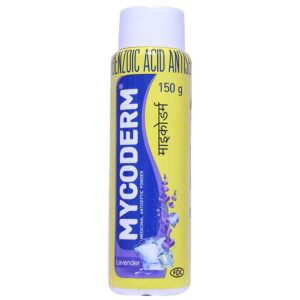MENTHOL + SALICYLIC ACID + BENZOIC ACID + STARCH
Menthol: Menthol is a naturally occurring compound derived from the leaves of the mint plant. It is widely used in various pharmaceutical and over-the-counter products for its cooling and soothing effects. Menthol is best known for its ability to provide relief from congestion, cough, and minor throat and muscle irritation.
Menthol acts by activating the cold receptors in the skin and mucous membranes, producing a cooling sensation and providing a sense of relief. It also has mild analgesic properties, reducing pain and discomfort.
Menthol is available in various forms such as creams, ointments, lozenges, and inhalers. It is commonly used topically to alleviate muscle aches, headaches, and itching. It is also used as a key ingredient in cough drops, lozenges, and vapor rubs for its soothing effect on the throat and respiratory passages.
The dose and frequency of menthol use vary depending on the specific product and the condition being treated. It is important to follow the instructions provided by the manufacturer or healthcare professional.
While menthol is generally considered safe for use, it can cause side effects in some individuals, especially if used in excessive amounts or on broken or irritated skin. Common side effects may include skin irritation, redness, burning sensation, and allergic reactions. In rare cases, high concentrations of menthol may cause respiratory distress, especially in infants and young children.
It’s important to note that menthol should not be used on children below the age of two without consulting a healthcare professional. Additionally, individuals with known allergies or sensitivities to menthol should avoid using menthol-containing products.
As with any medication or substance, it is advisable to consult a healthcare professional before using menthol, especially if you have any underlying medical conditions or are taking other medications. They can provide personalized advice and guidance based on your specific situation.
Salicylic Acid: Salicylic acid is a commonly used drug for the treatment of various skin conditions, including acne, warts, and psoriasis. It is a beta hydroxy acid that works by exfoliating the skin, removing dead cells and unclogging pores. This helps to reduce inflammation and promote the growth of new skin cells.
The exact mechanism of action of salicylic acid is not fully understood, but it is believed to have anti-inflammatory and antibacterial properties. It helps to dissolve the substance that holds the skin cells together, allowing for the removal of dead skin cells and the opening of blocked pores.
Salicylic acid is available in different formulations, such as creams, gels, solutions, and medicated patches. The concentration of salicylic acid can vary depending on the specific product and the condition being treated.
For acne, salicylic acid is typically applied topically to the affected areas once or twice a day. It is important to clean and dry the skin before applying the medication. For warts, salicylic acid can be applied directly to the wart and covered with a bandage. The treatment may need to be repeated for several weeks.
While salicylic acid is generally well-tolerated, it can cause some side effects. Common side effects include skin irritation, redness, and dryness. These side effects are usually mild and temporary. In rare cases, salicylic acid can cause severe allergic reactions, such as swelling, rash, or difficulty breathing. If any of these symptoms occur, medical attention should be sought immediately.
Salicylic acid should not be used on broken or irritated skin, and it should be avoided during pregnancy and breastfeeding. It is also important to follow the instructions provided by your healthcare professional or the product label when using salicylic acid to ensure safe and effective use.
Overall, salicylic acid is an effective medication for various skin conditions. However, it is always recommended to consult with a healthcare professional before using any medication, especially if you have any underlying medical conditions or are taking other medications.
Benzoic Acid: Benzoic acid is a white crystalline powder that is commonly used as a food preservative and as a component in cosmetic and pharmaceutical products. It is primarily used to prevent the growth of bacteria and fungi in various products.
The mechanism of action of benzoic acid is primarily due to its ability to inhibit the growth of microorganisms by interfering with their metabolic processes. It enters the cell and acidifies the cytoplasm, leading to the disruption of cellular functions and ultimately causing the death of the microorganism.
The dose of benzoic acid varies depending on its application. In food and beverages, it is typically added in concentrations of 0.05% to 0.1%. In cosmetic products, it is used in concentrations of up to 2%. As a pharmaceutical ingredient, it can be found in topical preparations for the treatment of skin conditions.
While benzoic acid is generally recognized as safe for consumption, it can cause some side effects in sensitive individuals. These side effects may include skin irritation, allergic reactions, and respiratory issues. It is important for individuals with known sensitivities or allergies to benzoic acid to avoid products containing this ingredient.
In conclusion, benzoic acid is a commonly used preservative with antimicrobial properties. Its mechanism of action involves disrupting cellular processes in microorganisms. The dose of benzoic acid varies depending on its application, and it can cause side effects such as skin irritation and allergic reactions in some individuals.
Starch: I’m sorry, but “Starch” is not a specific drug. Starch is a complex carbohydrate commonly found in plants. It is used as a food ingredient and has various industrial applications. If you are referring to a specific drug or medication, please provide the correct name so that I can assist you with the information you require.

